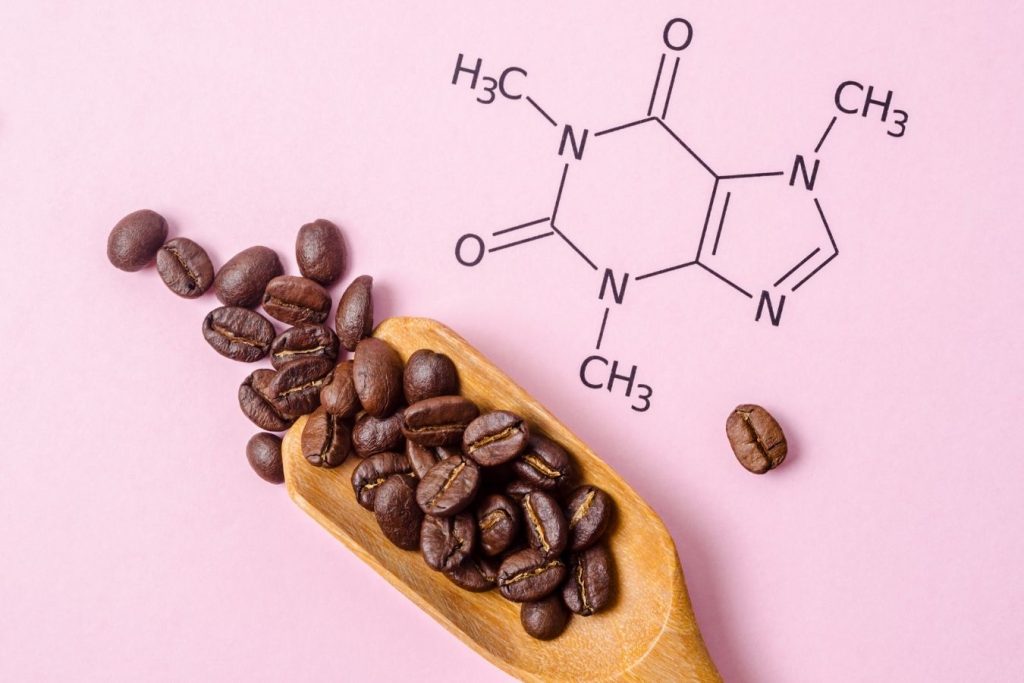
Is It True That Caffeine Can Slow Growth In Children? Anyone who has a habit of drinking coffee or tea in the morning knows that is a stimulant. This substance can make children irritable, upset the stomach, make the heart beat faster, increase blood pressure and disrupt sleep, but it will not delay the child’s development.
Misconception about caffeine in coffee
According to statistics, American adults aged 18 to 65 years drink the most coffee of any caffeinated beverage, including energy drinks, tea, and soda. For teenagers, coffee is the second most-consumed caffeinated beverage, after energy drinks. Therefore, there is much debate about whether caffeinated drinks are suitable for children and safe for teenagers.
There is no valid scientific evidence that coffee can slow growth in children. This idea may stem from the misconception that coffee causes osteoporosis (a condition linked to height loss). But blaming coffee for reducing height is a mistake for at least two reasons:
- Coffee does not cause osteoporosis
- Osteoporosis doesn’t necessarily make you shorter.
Another objection is that most people complete their height growth before drinking regular coffee. Girls almost reached their full height by the time they were 15-17 years old, and boys later. You can’t shorten bone growth by drinking a lot of coffee into adulthood.
Decades ago, studies reported that coffee drinkers might have an increased risk of osteoporosis by:
- Can increase the excretion of calcium from the body.
- Calcium deficiency can contribute to osteoporosis.
- Caffeine has almost no effect on calcium deficiency.
However, the effect of caffeine on calcium excretion is minimal. You can offset this decrease in calcium absorption by adding 1-2 tablespoons of milk to each 180 ml cup of coffee.
Furthermore, the link between coffee consumption and osteoporosis has never been confirmed. One study followed 81 girls ages 12 to 18 for six years and found no difference in bone health between those with the highest daily intake and those with the lowest.
When analyzing studies, people who drank more coffee drank less milk and other calcium-containing beverages. So it may be that the diet of coffee addicts increased the risk of osteoporosis rather than this.
Recommendations on caffeine intake in children (energy)
Caffeine has many undesirable effects, but stunting is not one of them. Caffeinated beverages, such as soda, are mostly empty calories. They make children feel full but without nutrition.
This deficiency will gradually affect the development of the child. That’s a good reason to keep caffeine and sugar intake to a minimum. These recommendations cover caffeine from all sources, not just coffee. Caffeine is also found in tea, soda, energy drinks, and chocolate.
The American Academy of Pediatrics recommends limiting children’s daily caffeine intake to less than:
- 45 mg for children aged 4-6 years
- 62.5 mg for children 7 – 9 years old;
- 85 mg for children 10 – 12 years old;
- 2.5 mg/kg body weight/day for adolescents aged 12-18 years. This is equivalent to about 1 cup of coffee per day.

Check the nutrition label before giving your child anything with caffeine. You may be surprised to discover in one serving:
- Soft drinks can contain 22 – 69 milligrams (mg) of caffeine
- Energy drinks have 76 – 280 mg of caffeine
- Iced tea has 27 – 42 mg of caffeine
- White chocolate has 12 mg of caffeine
- Dark chocolate has 40 mg of caffeine
- Chocolate flavored milk has 5 mg of caffeine.
Just as drinking caffeine will not make your child shorter, avoiding it will not make your child taller. If caffeine consumption is within the recommended limits, coffee is still safe, and even coffee is beneficial.
How to optimize bone health
Take advantage of the “golden period.”
Your height is primarily determined by your genes, although poor diet and malnutrition can cause stunting in children. However, you can help protect your bones with proper nutrition and exercise, especially during your teen years.
Most people reach their maximum bone strength in their late teens to early twenties. Therefore, adolescence is the best time to set solid bones.
Nutrition
Calcium and vitamin D are two essential nutrients for healthy bones. Vitamin D helps the body absorb calcium and supports bone structure and function.

- In fact, 99% of your body’s calcium supply is stored in your bones and teeth. Calcium is found in many foods, but milk and other dairy products are the most common sources.
- Few foods are naturally high in vitamin D, but many are fortified, including orange juice, milk, yogurt, and breakfast cereals. Vitamin D can also be produced naturally when your skin is exposed to sunlight.
Practice
When you lift weights, you put tension in your muscles. Muscles adapt to this tension by growing bigger and stronger. Conversely, if you don’t stress your muscles, they won’t change their inherent strength and size or become weaker.
The same is true of bones. Lifting weights puts pressure on your bones, making them stronger and more resistant to fracture. School-age children can safely exercise using free weights, weight machines, elastic bands, or body weight (push-ups, planks, etc.)
Keywords: bull energy drink, view abstract Doherty, med sci sports, view abstract smith, PMC free article, view abstract van, view abstract Chen, side effects, review view abstract, view abstract Henderson-smart,…ook, drug, active, services, hours


